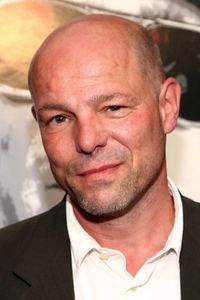Simon Cellan Jones is a renowned filmmaker, widely recognized for his work on the upcoming 2024 film "Arthur the King", the 2023 movie "The Family Plan", and the critically acclaimed 1996 miniseries "Our Friends in the North".
In his personal life, Cellan Jones has been married to Elizabeth Starling Gifford since June 7, 2003. Prior to his current marriage, he was previously wed to Sarah Cellan-Jones.






























